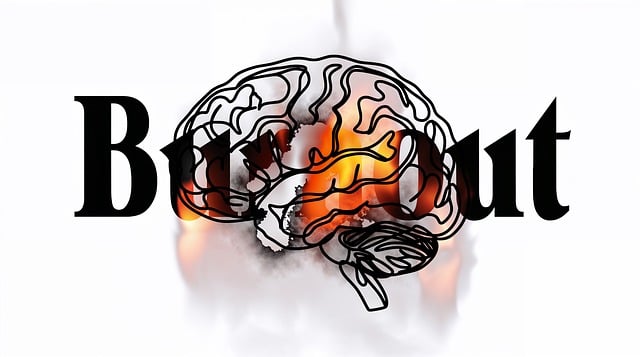Castle Rock American Sign Language (ASL) Therapy revolutionizes mental wellness care by breaking communication barriers, fostering inclusivity, and empowering individuals through group therapy sessions. Facilitators play a crucial role in creating safe spaces, managing power dynamics, and promoting active participation to enhance therapeutic outcomes. This approach, backed by effective communication, stress reduction techniques, and peer support, enables participants to share experiences, build community, and develop valuable coping strategies, ultimately improving mental wellness journeys. By evaluating success through both qualitative and quantitative methods, Castle Rock ASL Therapy demonstrates its impact, inspiring others with success stories that highlight the benefits of this innovative therapy.
“Unleash the power of community support in mental wellness through effective group facilitation. This comprehensive guide explores dynamic techniques for leading therapeutic groups, focusing on creating inclusive spaces. From understanding group dynamics to engaging ASL therapy, we delve into strategies that foster connection and participation. Discover how a safe environment can revolutionize mental health care, especially with innovative practices like Castle Rock American Sign Language Therapy. Enhance your skills in facilitating successful group sessions.”
- Understanding Group Dynamics for Effective Facilitation
- Castle Rock American Sign Language (ASL) Therapy: Unlocking Communication Barriers
- Creating a Safe and Supportive Environment for Mental Wellness Groups
- Engaging Facilitation Techniques to Enhance Connection and Participation
- Measuring Success: Evaluating the Impact of Group Therapy Sessions
Understanding Group Dynamics for Effective Facilitation

Understanding group dynamics is a cornerstone for effective facilitation, especially in therapeutic settings like Castle Rock American Sign Language Therapy. Groups are complex ecosystems where individuals with diverse backgrounds and experiences come together to share their stories and support one another. Facilitators play a crucial role in fostering an environment that encourages open communication, mutual respect, and trust. By recognizing power dynamics, managing confidentiality, and promoting active participation, facilitators can ensure every member feels heard and valued.
This understanding is particularly vital when addressing sensitive topics related to mental health awareness and stress reduction methods. Skilled facilitators navigate the group’s emotional landscape, ensuring that discussions on mental illness stigma reduction efforts are inclusive and non-judgmental. They create a safe space where members can openly discuss their challenges and celebrate victories, ultimately enhancing the therapeutic benefits of the group experience.
Castle Rock American Sign Language (ASL) Therapy: Unlocking Communication Barriers

In today’s diverse healthcare landscape, Castle Rock American Sign Language (ASL) Therapy emerges as a powerful tool to bridge communication gaps and enhance patient care. This innovative approach transcends verbal barriers, ensuring that every patient, regardless of their hearing abilities, can actively participate in their mental wellness journey. By integrating ASL into therapy sessions, facilitators create an inclusive environment, fostering better understanding and connection between patients and providers.
The benefits extend beyond effective communication; Castle Rock ASL Therapy also serves as a burnout prevention strategy for healthcare providers. It cultivates empathy building strategies by encouraging professionals to step into the shoes of their deaf or hard-of-hearing patients, promoting deeper levels of compassion and nuanced care. Additionally, this therapeutic method can be incorporated into Mental Wellness Journaling Exercise Guidance, offering unique ways for individuals to express themselves and share personal experiences in a non-verbal format, thus enriching the overall mental wellness practice.
Creating a Safe and Supportive Environment for Mental Wellness Groups

Creating a safe and supportive environment is paramount when facilitating mental wellness groups, especially considering the sensitive nature of the discussions. Group members should feel comfortable expressing their thoughts and emotions freely, knowing that they are in a non-judgmental space. As a facilitator, it’s crucial to establish ground rules at the outset, emphasizing respect, confidentiality, and active listening. This sets the foundation for trust within the group, encouraging participants to open up about their mental health journeys.
At Castle Rock American Sign Language Therapy, we understand that fostering a sense of community is vital for effective group therapy. By creating an inclusive atmosphere, facilitators can help members build connections and gain support from peers facing similar challenges. Additionally, incorporating strategies like social skills training and stress reduction methods can further enhance the group’s overall well-being, ensuring that each individual feels valued and empowered throughout their mental health journey.
Engaging Facilitation Techniques to Enhance Connection and Participation

Engaging facilitation techniques are pivotal in fostering connection and participation within mental wellness groups, creating a supportive environment conducive to healing and growth. Incorporating diverse methods like Castle Rock American Sign Language (ASL) Therapy can significantly enhance inclusivity, especially for individuals who find verbal communication challenging. ASL offers a non-verbal avenue for self-expression, breaking down barriers associated with the Mental Illness Stigma Reduction Efforts. Through interactive activities, games, and open discussions facilitated by trained professionals, members feel empowered to share their experiences, build camaraderie, and learn from one another.
Tailoring Stress Reduction Methods and integrating them into group sessions ensures that participants have access to practical tools for managing mental health challenges. Mental Health Education Programs Design can benefit from these techniques, promoting active learning and engagement. By fostering a sense of community and encouraging open dialogue, facilitators create a safe space where individuals feel valued, understood, and supported in their journey towards improved mental wellness.
Measuring Success: Evaluating the Impact of Group Therapy Sessions

Evaluating the success of group therapy sessions is a multifaceted process that goes beyond simply counting attendance. At Castle Rock American Sign Language Therapy, we recognize that quantifiable outcomes are crucial for understanding the impact of our programs on mental wellness. This involves assessing participants’ progress in various domains, such as improved communication skills through American Sign Language (ASL), enhanced coping strategies for stress management, and increased social connections within the group.
By combining qualitative feedback from participants and quantitative data like pre-post assessments, we gain a holistic view of each individual’s journey. This approach allows us to tailor our facilitation techniques, ensuring that sessions remain engaging and effective. Moreover, sharing these success stories through public awareness campaigns development can inspire others and contribute to the broader understanding of Mindfulness Meditation as a valuable tool for mental health support.
Mental wellness group facilitation is a powerful tool, enhanced by innovative techniques like Castle Rock American Sign Language (ASL) therapy, which breaks communication barriers. By understanding group dynamics, creating safe spaces, and employing engaging facilitation methods, therapists can foster deep connections and elevate participation. This holistic approach, coupled with measuring success through evaluation, ensures that group therapy sessions have a profound and lasting impact on participants’ mental wellness.














